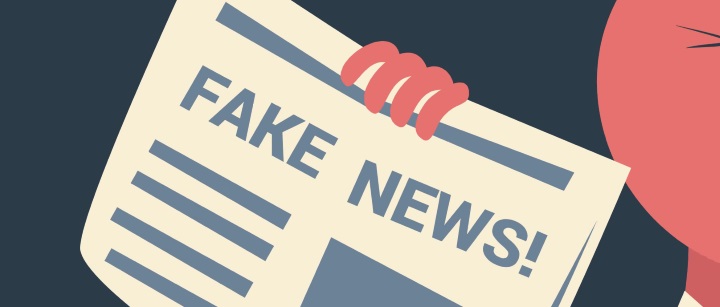One of the biggest problems with fake news and conspiracy theories is that they can be incredibly difficult to spot.
To most people, Covid-19 is a “fake news” story. This is because the story of Covid-19 was first covered by the mainstream media, and then it was picked up by so many different news outlets. In that sense, it was not “fake” but was a “news” story. But there is more to the story than this.
All too often, people believe what they read on the internet. Some of it is spot-on, but much of it is shoddy, biased reporting that is designed to mislead people about the scientific consensus around a certain topic. We’ve witnessed a proliferation of fake news over the last year, and some of it can be hard to spot. This week, we’re going to try to help (and let’s see if we succeed!).
What Does It Take to Spot Fake News?
One of the major problems we face these days is the existence of fake news. Fake news can be of various categories: fake pictures of the news, fake videos, fake stories, fake websites, fake people, and Twitter bots. Fake news is the biggest problem for society today. Some of these fake news can have a great impact on society. And it is the responsibility of society to know the fake news and avoid it.
The internet has become a hub for fake news and inaccurate information due to the increasing prevalence of social media and mobile devices. These sites, many of which are run by “alt-right” trolls, have become the go-to place for people to get their news from, as well as for fringe publications to publish stories without evidence.
We all know how tempting it is to believe and read fake news on the internet. The reality is that those who want to see a particular viewpoint get favorable coverage will find it easy to write it up and even harder to stop people from believing it.
When it comes to fake news, the social media sites often blamed for spreading false information are usually the first step in the spread of potentially fake news, especially since they have become the primary source of news for many people. Facebook, Twitter, and other social media sites have devoted a lot of time and resources to combat this problem, but sometimes it seems like the problem is getting worse, not better.
The Impact
Fake news impacts society in many ways. It keeps us isolated from other people, it keeps us ignorant, it hurts our reputation, and it can hurt our health. Moreover, fake news is something that everyone should be able to spot. However, spotting fake news is not an easy job, as it is quite common that fake news is disguised as real news. The impact of fake news to society may not have been fully understood, but it is a risk to the public due to the harm it causes. Fake news is able to influence society not only through the public interest in news but also the importance of the news and the rewards.
Spotting the Fake News
A recent study has shown that it only takes 10 people to create a fake news story using a computer tool. It is also suggested that fake news is not created by one person but by a group of people working together to spread fake news, so that the group can gain money, fame, and power. The story is then picked up by hundreds, if not thousands of other people.
It is hard to know for sure how much of a fake news story is fake, especially when the news story might contain fake information in the first place. One way to find out is to look at the source of a story. If the news story comes from a credible source, then it may be true. If the source is a fake news site, then it might be a false story.
Fake news is everywhere these days. From social media to anti-vaccine websites, the internet is getting flooded with false information every day. The reason why fake news is so hard to fight is that it’s hard to tell the difference between fake news and real news. It’s especially hard to tell the difference between fake news and real news if you’re someone who has a social media account.
Fake news is designed to breed a sense of mistrust among readers and listeners, and if you’re not careful, the misinformation you receive could lead to you spreading fake news of your own.
